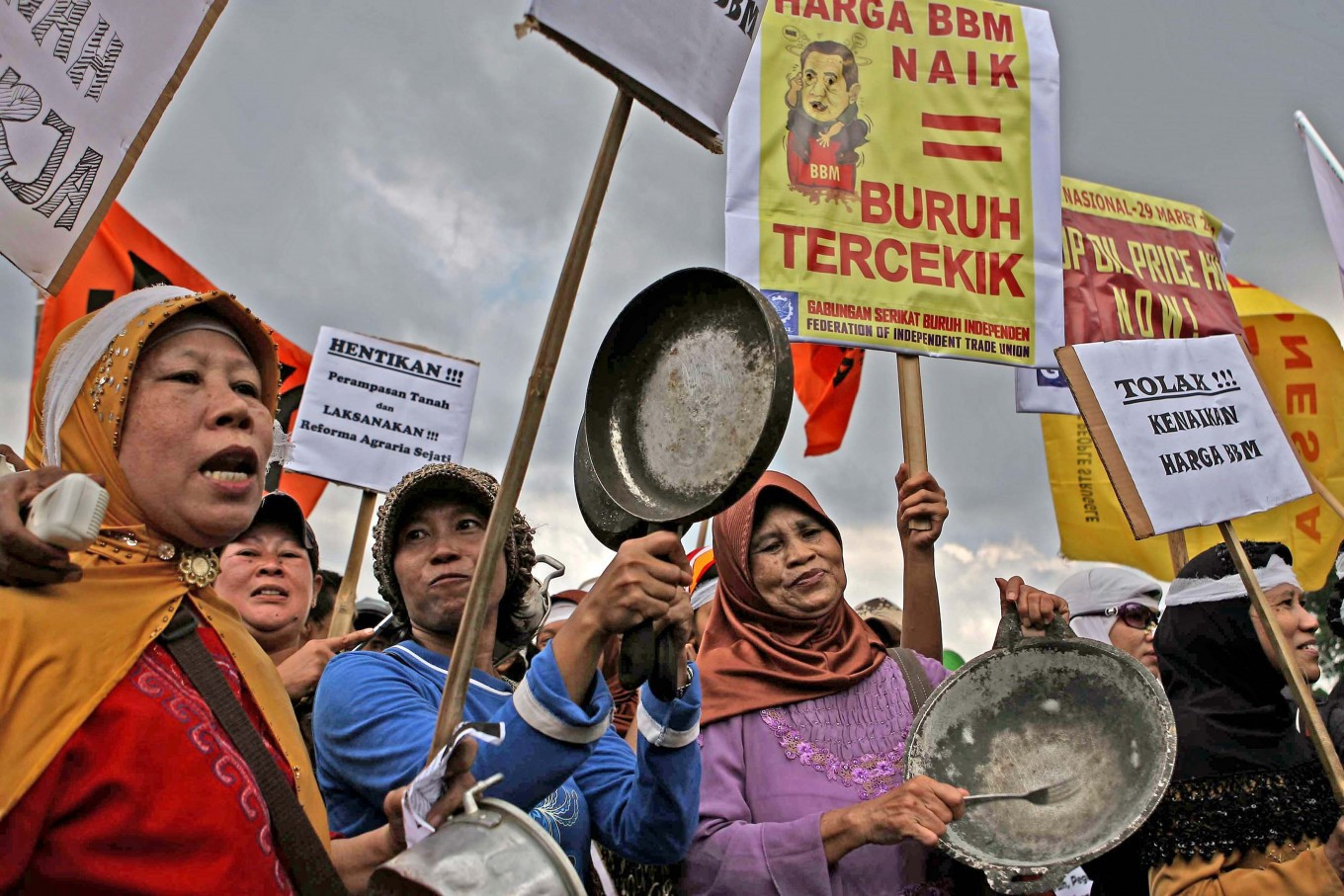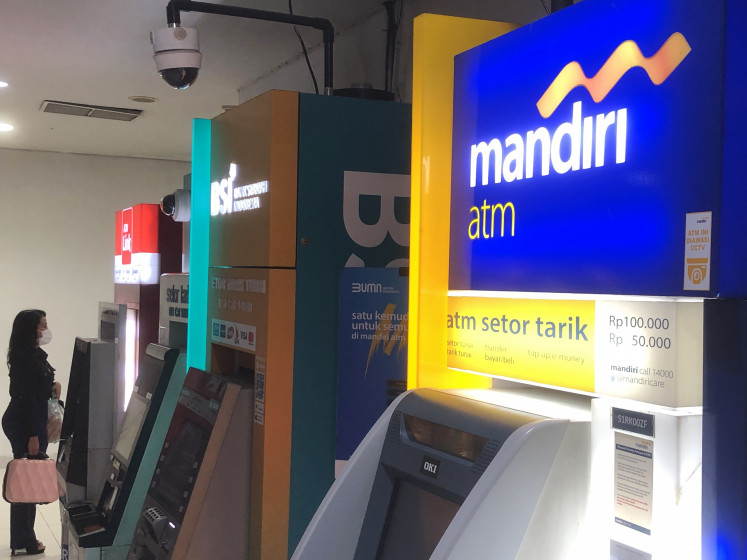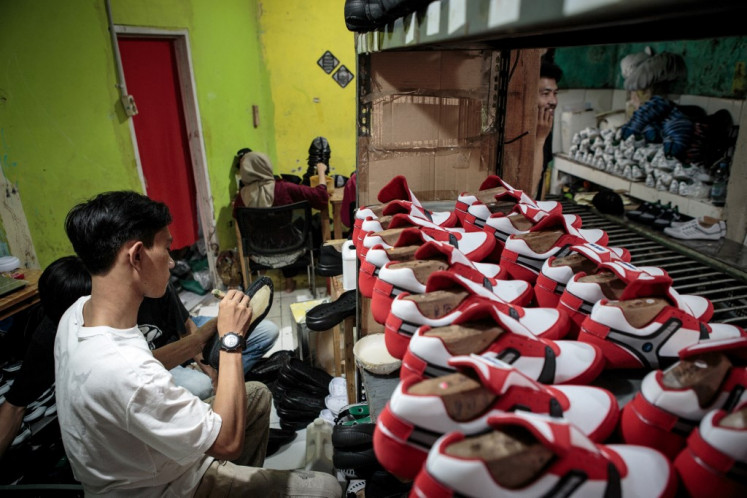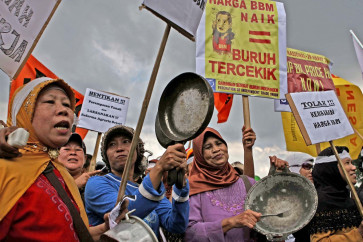Popular Reads
Top Results
Can't find what you're looking for?
View all search resultsPopular Reads
Top Results
Can't find what you're looking for?
View all search resultsAnalysis: Protests over fuel price hike continue but unlikely to be effective
September has been marked by massive waves of street rallies, protesting against the government’s decision to increase subsidized fuel prices
Change text size
Gift Premium Articles
to Anyone
 Women from the Solidaritas Perempuan group participated in the rejection of the increase in fuel prices in front of the Parliament complex, Senayan on Jl. Gatot Subroto, Jakarta (Thursday, March 29, 2012). They brought pots, cauldrons and other kitchen utensils while sounding them during the protest against rising fuel prices with the workers and students. ( JP/P.J.Leo)
Women from the Solidaritas Perempuan group participated in the rejection of the increase in fuel prices in front of the Parliament complex, Senayan on Jl. Gatot Subroto, Jakarta (Thursday, March 29, 2012). They brought pots, cauldrons and other kitchen utensils while sounding them during the protest against rising fuel prices with the workers and students. ( JP/P.J.Leo)
S
eptember has been marked by massive waves of street rallies, protesting against the government’s decision to increase subsidized fuel prices. With the Labor Party making a name for itself by spearheading the demonstrations, the protests are likely to carry on, but unlikely to force the government to bow down to their demands.
In response, President Joko “Jokowi” Widodo said the public was welcome to express their views because Indonesia is a democratic country. While it is true that the right to protest is an essential part of a democracy, more often than not, it has made little, if any, impact on government decisions and policies.
Although fuel prices have been hiked by about 30 percent, the first such increase since 2014 and something that Jokowi’s predecessors avoided, political analysts say that the President is well placed to absorb the shocks of the protests. This is due to his relatively high approval rating well into his second term as well as a broad coalition at his beck and call.
Security authorities allowed the protests to take place across the country as long as they adhere to the regulations and do not turn ugly. Confederation of Indonesian Trade Unions (KSPI) president Said Iqbal stated that the protests would be focused around the House of Representatives in Central Jakarta, while rallies also happened in Bandung, West Java; Semarang, Central Java; Surabaya, East Java; Yogyakarta; Banda Aceh, Special Region of Aceh; Medan, North Sumatra; Batam, Riau Islands; Padang, West Sumatra; Pekanbaru, Riau; Bengkulu; Lampung; Banjarmasin, South Kalimantan; Samarinda, East Kalimantan; and Pontianak, West Kalimantan.
With the protests dragging on, there are concerns that the fuel price hike is being politicized by the only two opposition parties, namely the Prosperous Justice Party (PKS) and the Democratic Party. Garuda Party spokesman Teddy Gusnaidi, for one, has called out political parties for trying to win the public’s hearts by siding with those against the government policy, especially as the 2024 elections are drawing closer.
Because the KSPI is also leading protests across the country, it is also possible that the Labor Party, which is also chaired by Said Iqbal, is taking this as an opportunity to gain relevance. Last August, the party just registered with the General Elections Commission (KPU) to take part in the general elections in 2024.
What’s more


















